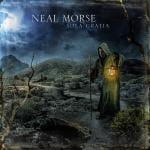I didn’t know the term psephology until I read the article “Psephology in Free Fall” a while back. Here is an excerpt that connects it with the Bible:
Psephology comes from the Greek psephos, or pebble; in Athenian democracy, votes were cast by dropping black or white pebbles into ceramic urns. But that wasn’t the only thing the ancients did to their pebbles. The word has a dark twin, psephomancy, divination by pebbles, something far older and vaster, something it can never quite break free from. The high priests of the ancient Israelites would wear the Urim and Thummim in their breastplates, white and black stones of alabaster and hematite that were, along with dreams and prophets, a means by which God would reveal Himself to the world. Psephomancers would throw pebbles, and then study the patterns they made to predict the future or decide whether someone was innocent or guilty; in the Bible, the Book of Samuel records this practice in the court of King Saul. His son Jonathan gets the black pebble; that’s how we know he has sinned and must die.
Modern psephology hasn’t taken the mysticism out of this ancient practice, just robbed it of its grandeur…
It is fascinating that the term for “quantitative analysis of elections and balloting” derives from the Greek word for “pebble” because of a tradition of using pebbles in divination (as well as voting). How much of our analysis is divination and assumption? How much of our outcomes are shaped by the biases we bring even in asking the questions we do, and indeed what questions we consider worth asking?
It didn’t dawn on me until recently just how much our approach to finding information online and the pitfalls that anyone, but especially the inexperienced, can fall into mirror the issues that come up in stereotyping, implicit bias, and discrimination. In a training session on microaggressions just before the start of classes I found my mind turning to this. Our brains use shorthands and assumptions to speed things up. Because historically more pilots of airplanes have been men than women, even if one is a feminist, seeing a photo of a man and a woman and being told there is a pilot in it, we may instinctively assume it is the man without even realizing it. The historical situation is itself due to bias, and the assumption based on the experience can reinforce and perpetuate the bias. That is the same thing that happens with search algorithms, and when police and company software uses zip code to stand in for demographics and other attributes.
The example I mention above is not hypothetical–it made the news recently:
Vance Morgan wrote, ‘more than two millennia ago, Protagoras understated the point when he observed that “Man is the measure of all things.” More truthfully, each of us believes that “I am the measure of all things.” If I believe it, it must be true. And anyone trying to change my mind or behavior must have a hidden, most like insidious, agenda.’
Also of related interest, on how we figure things out, rationality, evidence, and so on:
Quarter of US Adults Get News from YouTube
David Brin shared chapters from a book of his
Fake news and phase transitions
When you hear hoofbeats, don’t think weaponized coronaviruses
http://learningaloud.com/blog/2020/09/19/history-or-indoctrination/?utm_source=feedburner&utm_medium=feed&utm_campaign=Feed%3A+LearningAloud+%28Learning+Aloud%29
The UK’s failed education algorithm reflects a broader educational failure
Unlimited Information is Transforming Society













